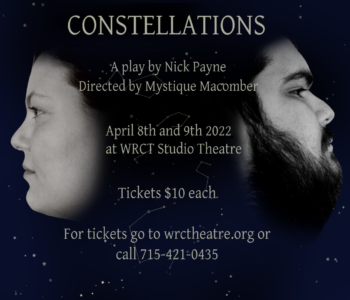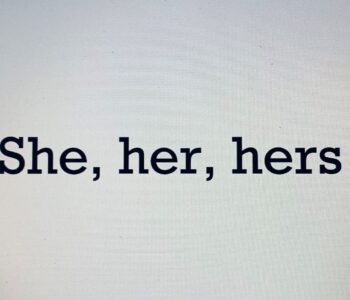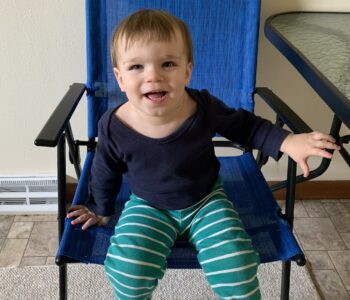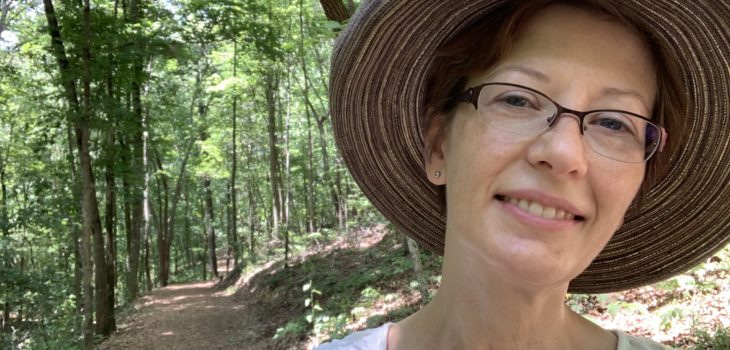
No more fitting in, now I want to belong…
I have developed a knack for fitting in — or maybe I should say I seem to fit in.
This is good and bad.
I also feel like I’ve found where I belong, and that’s good.
Fitting in vs. belonging
I recently read “Braving the Wilderness” by Brené Brown. She writes about fitting in, belonging and braving the wilderness, which is standing alone for what you believe is right or being true to your beliefs.
When we fit in, or try to fit in, we aren’t necessarily being true to ourselves. If we are true to ourselves, we may be standing alone in the “wilderness,” and that can be lonely.
The premise of Brown’s book is about belonging, which sprang from a Maya Angelou quote: You are only free when you realize you belong no place — you belong every place — no place at all. The price is high. The reward is great.
Brown sought a sense or feeling of belonging during much of her life, yet she often felt like an outsider. She researched and studied our desire to belong and figured out how we can belong and connect with people, even when we are divided.
In one chapter, Brown shared students’ descriptions of belonging and fitting in. They said that belonging is being accepted for who you are; fitting in is conforming to someone else’s expectations.
It’s a good book, and there is a lot of great information in it.
But I took it — both the premise and the quote that started it all — in a different way. My own experience and thoughts took me in a different direction.
Which I guess should not be surprising, considering where I’ve been.
Brown’s first reaction to Angelou’s quote was that it was wrong. Having struggled to fit in — to belong — Brown couldn’t make it work. It took her several years and lots of research to figure out what it meant for her.
When I read it, my immediate reaction was: Yes! That’s it!
Because I was coming at it from a very different place.
Trying to fit in
I’ve never really fit in, but I have figured out how to seem like I do. Quiet and smart, I had one close friend in elementary school. We wanted to fit in, but we didn’t. In middle school, I gathered more friends, and by high school, my group was larger still, with a few very close friends. But by high school, I was done trying to fit in. I did my own thing. I knew I’d never be popular or even liked by the popular people, and I didn’t care. Really, I didn’t want to waste my time.
I did feel like I belonged, though, with my friends, especially my close friends. We understood each other, and though we didn’t always agree, we were there for each other, and we accepted each other.
When I went to college, I reinvented myself. I did not have to strive to fit in. Instead, I found friends who shared similar interests or with whom I enjoyed spending time. My major pulled me into a group of like-minded journalists. My roommates and friends offered different perspectives and ideas. Classmates and professors helped me see me different shades in the world, challenge my beliefs and think even more for myself.
In college, I started to feel like I belonged, even in different groups and settings. In looking at it through this new lens of fitting in vs. belonging, I can say I often felt like I belonged. It wasn’t just fitting in. I was able to be myself, have my own opinions and beliefs, yet still be accepted for them.
Fitting in at work
My career path allowed me to fit in and not fit in — all at once. As a journalist in a small city, I got to know lots of people. I was recognizable at meetings and events. Yet, as a journalist, I kept my distance, too. I was friendly and polite, but I rarely shared anything personal. It was better to keep your public and private personas separate. Reporters also tend to be quiet and watchful. We are content to sit in the back and watch and listen to what goes on — not take part. We don’t fit in. Instead, we are very much separate from the situation.
Among my co-workers, I found I belonged, as we shared common practices, goals and thinking. For example, we saw the world in a different light. We had policies to follow, ethics to guide us and a moral obligation to get things right and fix what we got wrong. We didn’t always fit in with what the public thought we should do.
I guess in that way, we were in Brown’s wilderness quite a lot, but we had each other for support in those situations.
My next career choice — assisted living — kept me at the edges. You can and should be compassionate and understanding. You need to be a good listener, be able to solve problems, think on your feet and get stuff done. I checked all those boxes. But you don’t share your personal life or philosophies with residents and their families. Even if they ask, you need to keep it casual. Having a bad day? You put on a smile and say everything is fine. You don’t really fit in, because you work where people live. It’s an odd situation, yet it was a great job.
I felt most like I belonged when I was working with families of people with Alzheimer’s and other dementia. I learned a lot, and I was able to share some of that knowledge as a support group facilitator as well as with staff members in our facilities. Family members, in particular, said they appreciated the insight and suggestions. Helping people gives you a sense of belonging — of being accepted for who you are and what you do. It’s more than just fitting in.
Finding a place to belong
Then, I turned my life upside down. I no longer wanted to fit in, nor did I care if I did. I got rid of two houses, nearly everything I owned, relationships, a job — in essence my life — I no longer had a place to fit in or belong. And that was my goal. I wanted to be free to live in other places. I wanted to belong no where and everywhere.
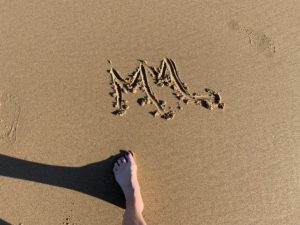
When I moved to Tennessee, I started over. I didn’t fit in, and I didn’t feel like I belonged — although I did feel welcome. It took a while to feel like I was starting to get it. And then I moved to Portugal.
In Lisbon, I didn’t fit in, but I did feel like I belonged. I tried to fit in, at least in how I dressed and acted, mainly because I didn’t want to be seen as a foreigner. (My flatmates called me “the American,” but I think they meant it nicely.) But who I was as a person, that was authentic. They accepted me for who I was, and that helped me feel like I belonged there.
As I stripped down my life in the past year and a half, I realized more and more what was important to me. I wanted to be authentic for myself, to myself. I guess that means I wanted to belong, even if it meant standing alone in the wilderness.
With that as my background, when I read the Angelou quote, I took it a different way than Brown. You are only free when you realize you belong no place — you belong every place — no place at all. The price is high. The reward is great.
I was free because I belonged (physically, socially and mentally) no place — and every place — and no place at all. The price to me personally was high (I gave up a lot to get here), but the reward was great (I am able to do what I want to do and live my dream).
I don’t fit in, and that’s OK. I do belong, sometimes, though, and that’s OK. And when I don’t belong, it means I’m not in the right place at the right time.
These days, more and more often, though, I feel like I belong, wherever I am, and whatever I do.
It’s not so much about where I am as who I am. I’m not just fitting in — I belong.
How to be a better writer tip
Read outside your preferred genre
If you like to read, you likely have types of books you prefer.
For example, I like biographies and autobiographies. For fiction, I enjoy off-beat novels or historical fiction.
Recently, however, I read a couple of books that weren’t biographies, although they contained autobiographical information. I referenced Brené Brown’s “Braving the Wilderness” in this post. She uses her life examples throughout, but it’s not a biographical book. It’s rooted in her research, and she uses her personal narrative to help drive home her point. This topic means a lot to her or she wouldn’t have written about it.
Reading something outside of my normal choices makes my brain work in a different way. New ideas and writing styles challenge me. It helps me think in terms of “what-if” and stretch myself.
Reading a new genre is a quick way to re-wire your thinking. Changing your thinking can help your writing. It can open up new ideas and lead you to your own “what-ifs.”
Need a suggestion? Poetry is a great way to change up your reading. Check out an anthology at your local library or go online to a poetry website and browse a bit. Maybe you even want to try some Maya Angelou poems!

